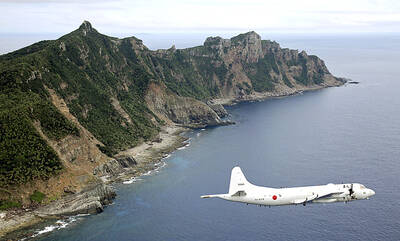Global ratings agency Moody’s yesterday downgraded beleaguered automaker Toyota because of uncertainty over “product quality” following mass recalls.
The move follows the recall of around 10 million vehicles worldwide owing to accelerator and brake defects and “reflects the ongoing low level of profitability evident at Toyota,” Moody’s said.
“Its [Toyota’s] product quality and recall challenges — largely centred in the US — have created significant uncertainty over whether it can maintain the pricing power it has historically achieved over its rivals,” said Tadashi Usui, a Moody’s senior analyst.
The agency downgraded Toyota and its subsidiaries to a negative outlook and a rating of Aa2, the third-highest on a scale of 19, meaning that while its capacity to repay debt had weakened it remained very strong.
However, profitability was expected to be hit in coming years by “litigation costs associated with the recall,” Usui said.
Combined with an expected sluggish recovery in auto sales this year, costs associated with the recalls created a risk that Toyota’s operating profit will be below “that appropriate for its rating level until 2012 at the earliest and possibly beyond,” he said.
Moody’s said the downgrade announcement concluded a review that began in February.
It added, however, that it expects Toyota to remain the world’s leading automaker in coming years with a debt-capital ratio of 17 percent and large cash reserves as of the end of last year.
Toyota, meanwhile, tumbled from third to 360th on the annual Forbes list of the world’s leading companies.
The carmaker trailed far behind rivals Ford, Honda and Hyundai in this year’s listing, which ranks 2,000 of the world’s best corporate performers based on an equal weighting of sales, profits, assets and market value.
Toyota ranked third last year and 10th five years ago.
US carmakers General Motors and Chrysler, which are currently turning around their businesses after filing for bankruptcy protection last year, were absent from the list.
Germany’s Daimler was ranked 388th and Volkswagen dropped off the list due to the complexity surrounding last year’s merger with Porsche.

MISINFORMATION: The generated content tends to adopt China’s official stance, such as ‘Taiwan is currently governed by the Chinese central government,’ the NSB said Five China-developed artificial intelligence (AI) language models exhibit cybersecurity risks and content biases, an inspection conducted by the National Security Bureau (NSB) showed. The five AI tools are: DeepSeek, Doubao (豆包), Yiyan (文心一言), Tongyi (通義千問) and Yuanbao (騰訊元寶), the bureau said, advising people to remain vigilant to protect personal data privacy and corporate business secrets. The NSB said it, in accordance with the National Intelligence Services Act (國家情報工作法), has reviewed international cybersecurity reports and intelligence, and coordinated with the Ministry of Justice Investigation Bureau and the National Police Agency’s Criminal Investigation Bureau to conduct an inspection of China-made AI language

BOOST IN CONFIDENCE: The sale sends a clear message of support for Taiwan and dispels rumors that US President Donald Trump ‘sold out’ the nation, an expert said The US government on Thursday announced a possible sale to Taiwan of fighter jet parts, which was estimated to cost about US$330 million, in a move that an expert said “sends a clear message of support for Taiwan” amid fears that Washington might be wavering in its attitude toward Taipei. It was the first announcement of an arms sale to Taiwan since US President Donald Trump returned to the White House earlier this year. The proposed package includes non-standard components, spare and repair parts, consumables and accessories, as well repair and return support for the F-16, C-130 and Indigenous Defense Fighter aircraft,

CHECKING BOUNDARIES: China wants to disrupt solidarity among democracies and test their red lines, but it is instead pushing nations to become more united, an expert said The US Department of State on Friday expressed deep concern over a Chinese public security agency’s investigation into Legislator Puma Shen (沈伯洋) for “secession.” “China’s actions threaten free speech and erode norms that have underpinned the cross-strait ‘status quo’ for decades,” a US Department of State spokesperson said. The Chongqing Municipal Public Security Bureau late last month listed Shen as “wanted” and launched an investigation into alleged “secession-related” criminal activities, including his founding of the Kuma Academy, a civil defense organization that prepares people for an invasion by China. The spokesperson said that the US was “deeply concerned” about the bureau investigating Shen

DISPUTE: A Chinese official prompted a formal protest from Tokyo by saying that ‘the dirty head that sticks itself out must be cut off,’ after Takaichi’s Taiwan remarks Four armed China Coast Guard vessels yesterday morning sailed through disputed waters controlled by Japan, amid a diplomatic spat following Japanese Prime Minister Sanae Takaichi’s comments on Taiwan. The four ships sailed around the Senkaku Islands — known as the Diaoyutai Islands (釣魚台) to Taiwan, and which Taiwan and China also claim — on Saturday before entering Japanese waters yesterday and left, the Japan Coast Guard said. The China Coast Guard said in a statement that it carried out a “rights enforcement patrol” through the waters and that it was a lawful operation. As of the end of last month,